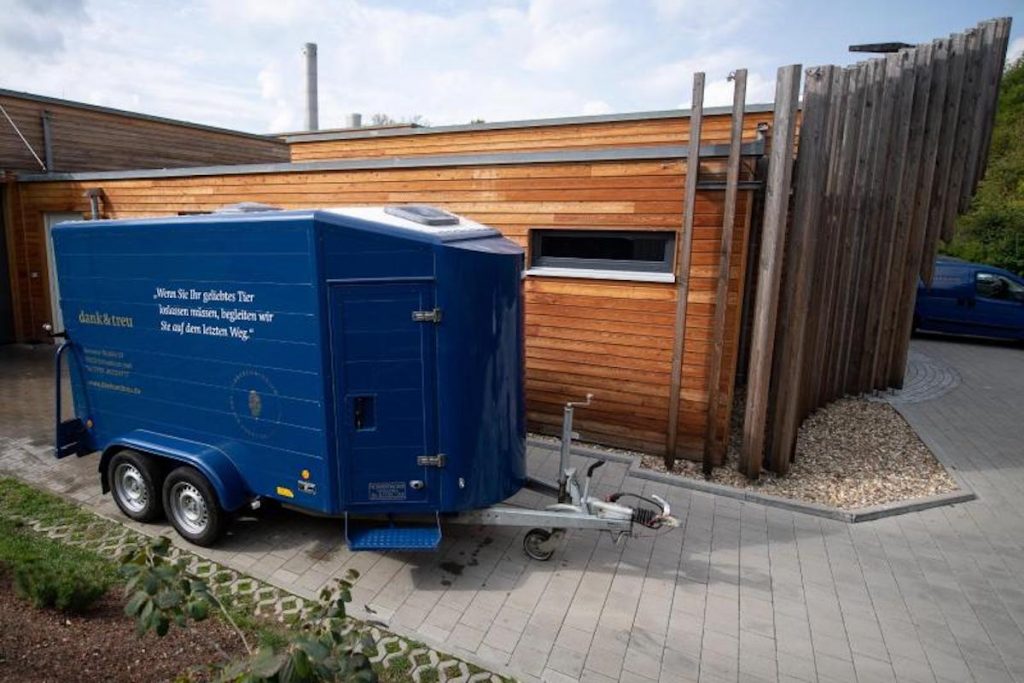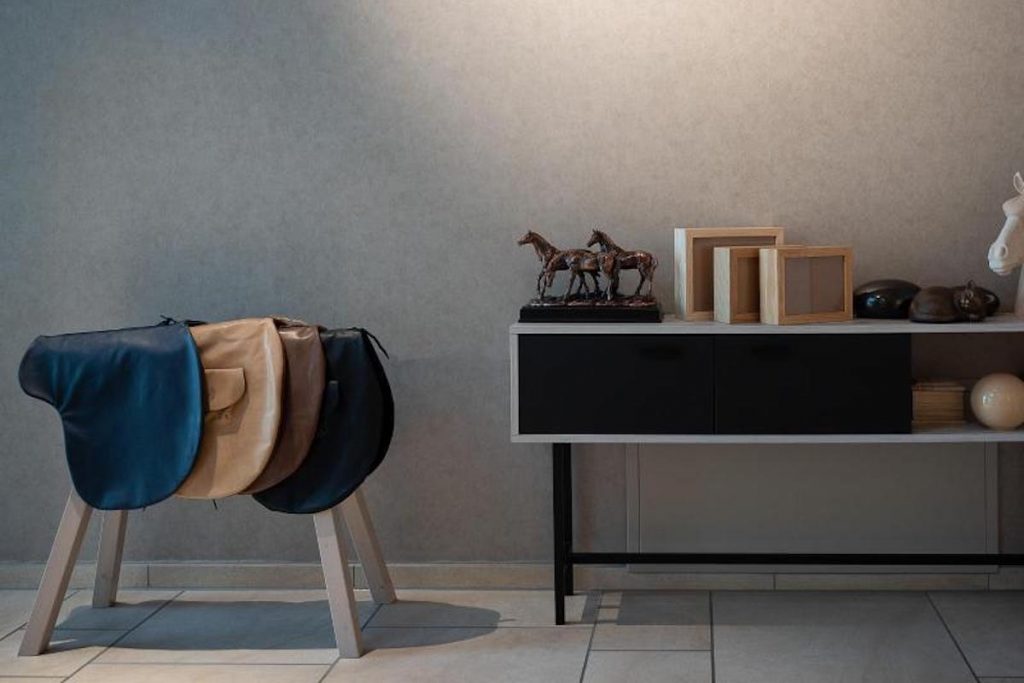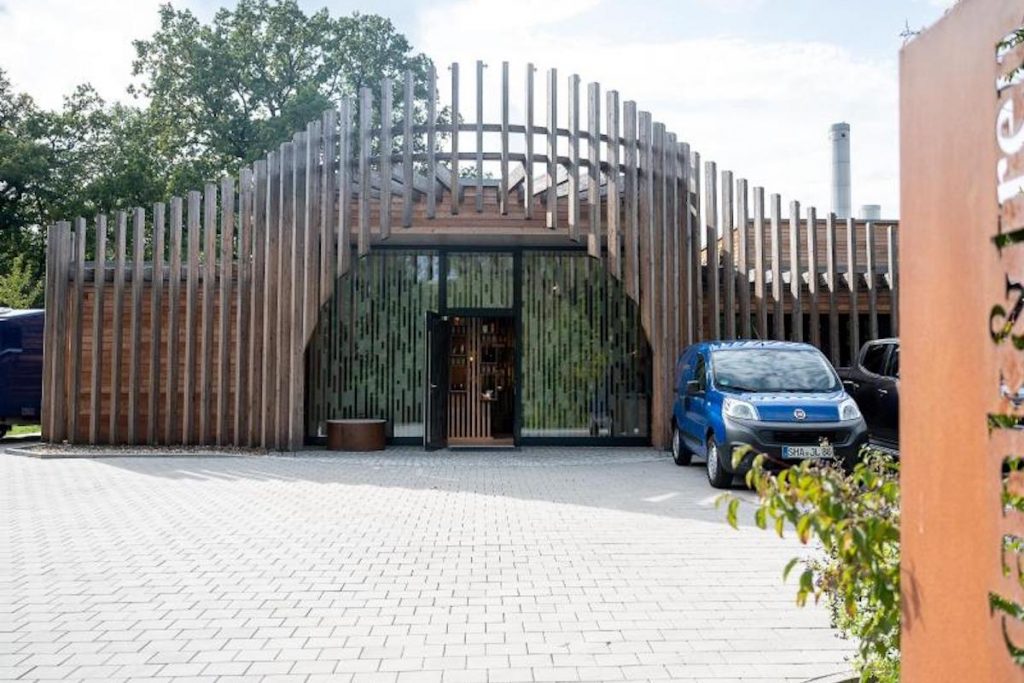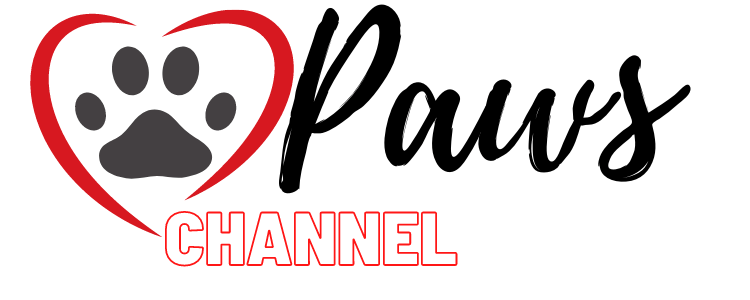Saying goodbye with dignity: This is how horse undertakers work
How horse undertakers work: Whether dog, cat, hamster, or horse, their animals are part of most pet owners’ family. The grief is correspondingly great when the beloved pet dies. It is all the more important to say goodbye with dignity. And that’s exactly what the horse undertakers Sandra and Jochen Lutz take care of.
The two-run two crematoriums for horses. For a long time, it was forbidden to cremate horses. Horses have only been allowed to be cremated in Germany since 2017. For some owners, cremation is worth a lot of money.
Seen from the outside, it’s just a horse trailer. But behind it is an XXL hearse. A horse carcass can be pulled inside on a stable mat with a heavy chain.
The driver then brings the dead animal to Schwäbisch Hall. The animal crematorium of the horse undertakers Sandra and Jochen Lutz is located at the forest cemetery there.

Photo: Sebastian Gollnow / DPA
The close bond between man and horse
Undertaker Lutz (44) speaks of “a worthy farewell” that not only family members deserve. “Horses can live up to 40 years,” she says. “The animals sometimes accompany their owners through half their lives, and they, therefore, belong to the family.”
In fact, their funeral home is hardly any different from a human crematorium. The lobby is elegant and made of wood. Music plays softly. There are animal urns in many variations on shelves, very simple or completely playful. The containers for horse remains are about 50 centimeters high rectangular boxes made of different types of wood. If you like it, you can fill a reworked saddlecloth with the ashes.
Read Also: Best feed for horses: Concentrated feeds

Photo: Sebastian Gollnow / DPA
Strict regulations apply to horse undertakers.
“In contrast to human ashes, there is no compulsory burial for animal ashes,” says Lutz. “The owner can keep the urn wherever he wants or scatter the ashes .”
On the other hand, the legislature is strict from delivery to the crematorium to cremation: the funeral worker can only enter the large hall in protective suits. The horse is laid out on a roller table. The owners, who often travel with their families, can only observe the last few meters to the incinerator through a pane of glass from a distance of several meters.
“When a person is cremated, the relatives can open the door to the furnace with a switch directly on the coffin if they wish,” explains Lutz, explaining the differences between the two types of burial. In humans, the system is preheated to 850 degrees Celsius.
With a horse, the burner is only turned on when the body is in the oven. The process takes six to eight hours until the remains are so small that they can be ground into granules for the urn. With humans, it takes an hour.
This could also be of interest to you: 100CM Horse Tail USB Lights Chargeable LED
The cremation of horses has only been allowed since 2017
The Lutz couple is not trained, undertakers. She is a trained insurance clerk; her 48-year-old husband is an industrial clerk. In 2003 they opened their human crematorium in Schwäbisch Hall. A crematorium for pets was added three years later. Horse lovers pay between 2000 and 3000 euros to have their deceased mount cremated, depending on the animal’s size.
According to the law in Germany, horses have only been allowed to be cremated since 2017. Before that, their owners had no choice but to leave the carcass to a skinner. Burying was and is forbidden.

Photo: horse undertakers work / DPA
In an animal carcass disposal facility, the dead horse is processed into the feed, and potting soil and other large animals, or the fat is processed for the cosmetics industry. But horses are also food. There are still a few remaining horse butcher shops that mainly produce sausages.
Read Also: Saying goodbye with dignity: This is how horse undertakers work
The crematorium is working to capacity.
“It has long been possible to have the animal cremated in other EU countries. But not always in a legal way, ”says Sandra Lutz. They were the first to hit the market three years ago in October. “Thanks & loyal” recorded three to five cremations per week. “We are now at the limit of our capacity.”
At the end of 2019, the Schwäbisch Hall horse undertakers also opened a crematorium in Blender near Verden (Lower Saxony). The location, which is almost 600 kilometers away, is no coincidence: “Verden is considered the equestrian town in Germany,” says Lutz. A change of location is out of the family’s question: Schwäbisch Hall is and will remain their home.

